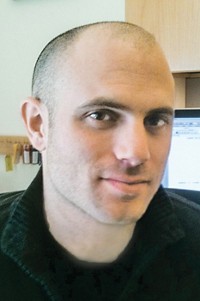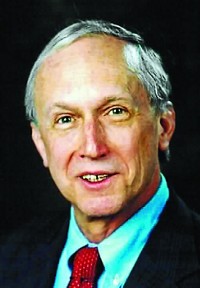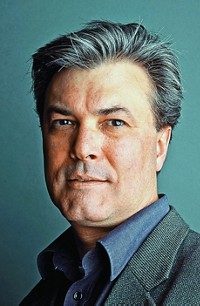Advertisement
Grab your lab coat. Let's get started
Welcome!
Welcome!
Create an account below to get 6 C&EN articles per month, receive newsletters and more - all free.
It seems this is your first time logging in online. Please enter the following information to continue.
As an ACS member you automatically get access to this site. All we need is few more details to create your reading experience.
Not you? Sign in with a different account.
Not you? Sign in with a different account.
ERROR 1
ERROR 1
ERROR 2
ERROR 2
ERROR 2
ERROR 2
ERROR 2
Password and Confirm password must match.
If you have an ACS member number, please enter it here so we can link this account to your membership. (optional)
ERROR 2
ACS values your privacy. By submitting your information, you are gaining access to C&EN and subscribing to our weekly newsletter. We use the information you provide to make your reading experience better, and we will never sell your data to third party members.
Synthesis
Arthur C. Cope Award: Jeffrey S. Johnson
Recipients are honored for contributions of major significance to chemistry
by Susan J. Ainsworth
February 22, 2010
| A version of this story appeared in
Volume 88, Issue 8
Enthralled with stories about Niels Bohr and Glenn Seaborg, Jeffrey S. Johnson first discovered his love for chemistry as a student at Emporia High School, in Kansas. He went on to earn a B.S. in chemistry at the University of Kansas in 1994 but was planning to go to law school “until I was saved by the summer I spent in Koji Nakanishi’s lab at Columbia University as part of the National Science Foundation Research Experiences for Undergraduates program,” he says. At that time, “a light bulb went on, and I felt like I understood why being able to make organic molecules was so important,” he says.
Expanding on that realization, Johnson earned a Ph.D. from Harvard University under David Evans in 1999, focusing on the development of new catalytic, enantioselective reactions. He then spent two years as a National Institutes of Health Postdoctoral Fellow in the laboratory of Robert Bergman at the University of California, Berkeley, before joining the University of North Carolina, Chapel Hill, where he is now an associate professor.
Johnson, 38, “is an enthusiastic and energetic young investigator who seeks to instill a love of chemistry in his students,” says Gregory C. Fu, a professor of chemistry at Massachusetts Institute of Technology. “His research during his eight years at UNC has been achieved exclusively with graduate students and undergraduates.”
In particular, Johnson’s group has made important contributions in the discovery of new organic transformations and their application to the total synthesis of natural products.
With his research group, Johnson has exploited acyl silanes as conjunctive reagents that couple complementary nucleophilic and electrophilic reaction partners, Fu says. After the group developed a new regiospecific cross-benzoin reaction using acyl silanes, it used the mechanistic information obtained to develop a new family of catalysts for acyl anion catalysis.
Johnson’s group has also “discovered an unusually mild and general electrophilic amination protocol for the synthesis of a broad range of aromatic and aliphatic amines,” Fu says. “The reactions are notable for their experimental simplicity and ease of product purification, as well as the remarkable steric demand that is tolerated on both reaction partners.”
In addition, Johnson’s laboratory has developed unusual annulation reactions between strained carbocycles and aldehydes and elucidated an unusual mechanism involving configurationally stable ion pairs.
Johnson has received numerous awards, including a Research Corporation Research Innovation Award, a 3M Nontenured Faculty Award, a Johnson & Johnson Focused Giving Award, an Amgen Young Investigator Award, a GlaxoSmithKline Scholar Award, and a Lilly Grantee Award. More recently, Johnson has been recognized with a Camille Dreyfus Teacher-Scholar Award and an Alfred P. Sloan Fellowship. He also received an NSF Career Award in recognition of his achievements in cycloaddition chemistry.
A dedicated teacher and mentor, Johnson humbly shares much of the credit for receiving the Cope Scholar Award with his students. “They are able to take my ideas and suggestions, some of dubious merit, that I lob like so many juggling pins and convert them into the body of work on which this award rests,” he says. “I am very proud of the scientists that my coworkers have become.”






Join the conversation
Contact the reporter
Submit a Letter to the Editor for publication
Engage with us on Twitter